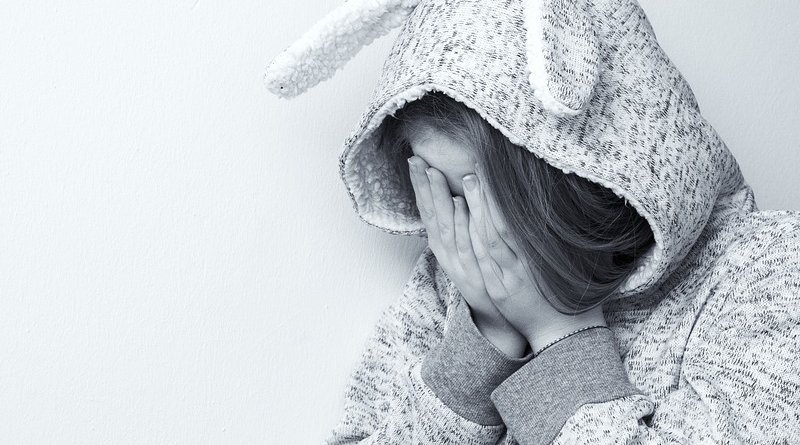The Plague Of Loneliness – OpEd
Human beings are social creatures and being in contact with other related species is built-in. Socialization is important both for citizens and for the societies where all they currently reside. It demonstrates that human entities and their interpersonal relationships are totally interconnected, but unfortunately circumstances are changed. There are many tragic occurrences happening as a social entity driving people towards loneliness. Loneliness is a distasteful mental approach to assumed alienation. Socio-pain is sometimes defined as loneliness — a mental force that empowers individuals to pursue social structures. As loneliness is a fundamental human emotion, nuanced as well as unique to each person, it’s also paired with an unwelcome loss of affection or communication. Loneliness intersects, and is somehow separate from solitude. Solitude is literally the feeling of living separated from everyone, not all suffering isolation feels lonely.
Over the past five decades, loneliness levels nearly expanded throughout the United States irrespective of geographical location, class, race or culture. National Academies of Science Engineering and Medicine (NASEM) states that far more one in-third of adults ranging in age 45 as well as older felt alone, and approximately one-fourth of elders aged 65 or older being increasingly considered alienated. As shown in a nationwide survey commissioned by Cigna, rates of isolation have hit an all-time peak, with approximately half of 20,000 U.S. adults saying that they often or often felt lonely. 40% of study respondents have indicated thinking that their partnerships really aren’t important and that those who felt alone at sometime and often. Evidence has shown that loneliness is present in society as a whole, particularly among people in families along with other close relationships and those with good careers. For some times in their life, most people face loneliness and some feel it very often.
Nowadays, social media such as Twitter, Facebook, and Instagram have become the single biggest source of information. Enormous numbers of people around the globe turned to social networking platforms in an attempt to keep up-to date and communicate with friends / relatives on new technologies. Research claim that people might restore energy as well as solidarity to social identity by using Facebook, Twitter, Instagram and related social media platforms to stay in touch with friends even end up creating-line links. However if users spend a lot of time every day accessing digital platforms solely as a proxy for actual interaction, the feelings of loneliness as well as worthlessness seem likely to get stronger. Seven out of 10 excessive social media consumers, 71 % from 53 % a year earlier, showed sense of loneliness. That really is slightly higher compared from 47 % a year later compared to 51% of light social media users feeling isolated. Over one-quarter of survey respondents described experiencing loneliness more times per week in the Australian Loneliness Survey. Research also related loneliness to early death, elevated coronary heart disease, deteriorating mental wellbeing including depression, suicide, as well as rising cost of healthcare services.
University of Pennsylvania conducted a research which shows that students who reduced their utilization Facebook, Twitter, and Snapchat for 3 weeks for 30 minutes a day experienced major decreases in loneliness and depression comparison to a group who did not adjust their social media consumption. A recent research suggests that there is potentially a significant correlation between using social media and its adverse impacts on well-being, especially depression and loneliness. Even the ring of a Smartphone promotes loneliness as according to researchers in at the San Francisco State University discovered that even relatively minor disruptions from a ringing Smartphone could cause individuals to experience a reduction in present pleasures which in fact leads towards loneliness slowly. Few reports blame Cyberbullying to be one of the causes for loneliness especially in youth. Research indicates that Cyberbullying is one of the major causes of loneliness which develops lower self-esteem in individuals urging them to distant themselves from the world, hence becoming the reason of loneliness.
Unfortunately human race is being the victim of plague of loneliness and they do not even realize it. Even sitting in one particular place together, individuals are alone; busy on their smart phones or scrolling down on social media sites rather than having effective communication with their family / friends. Socializing is a primary desire of human beings but it has worse consequences to one’s mental well being which in fact causing loneliness. Loneliness is a silent plague which is becoming more persistent each passing moment. Not only becoming a root cause of self harm but it induces depression which is generally considered negative; with multiple analyses and meta-studies finding that it constitutes a major risk factor for impaired behavior as well as physical health outcomes. Currently, Loneliness is being considered as an epidemic of the modern world, which not only have the impacts on adults but also taken in young generation.
As conflicting as it can become despite of how peaceful loneliness sounds, it is becoming a crucial drawback in the modern world. Since there has no clear underlying cause, it may significantly differ in the avoidance and diagnosis of this highly destructive state of mind. Loneliness is a challenge faced by everyone in the modern world which should be tackling with care and put on priority list as it identifies mental health crisis.
*Asra A. Ansari, recently completed an MS degree in Healthcare Managemen and is currently working as a motivational Psychologist to promote mental health well-being among individuals.

